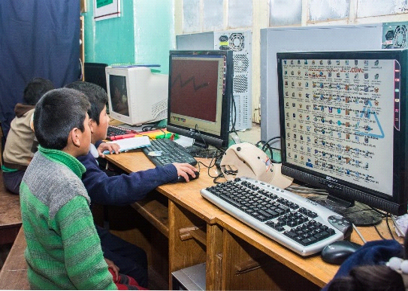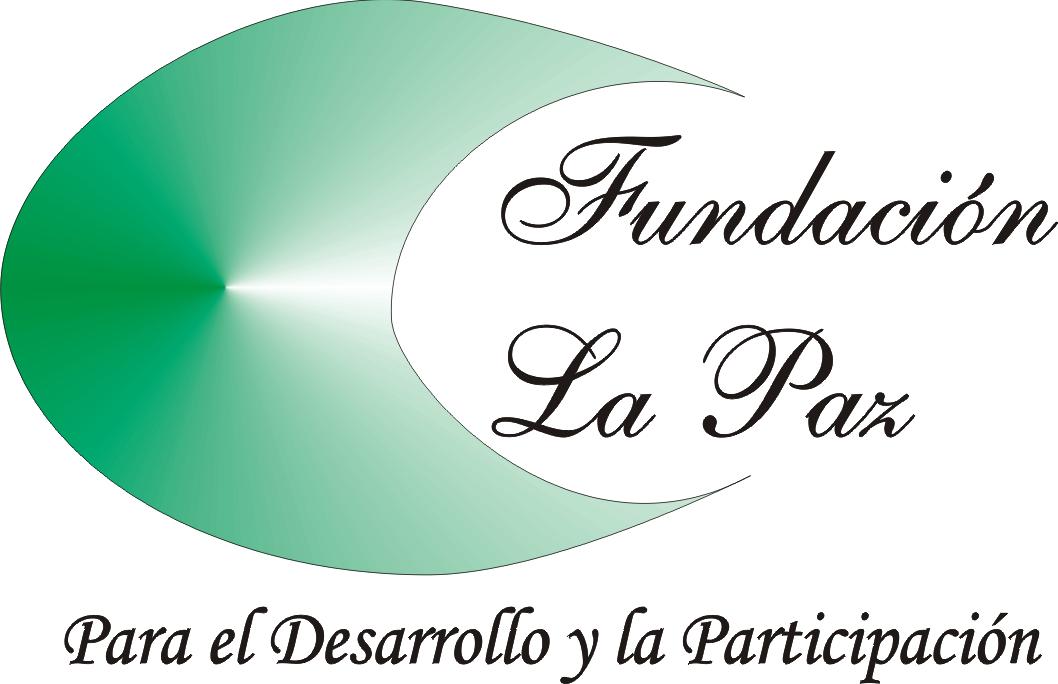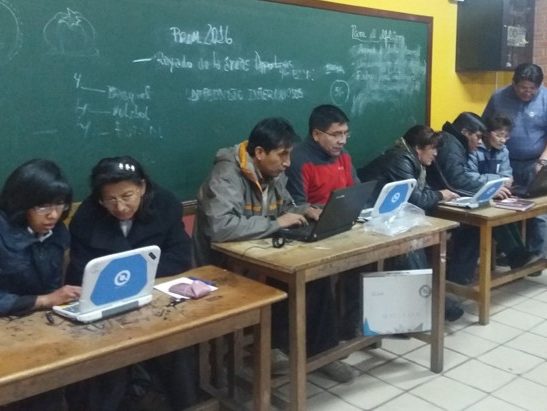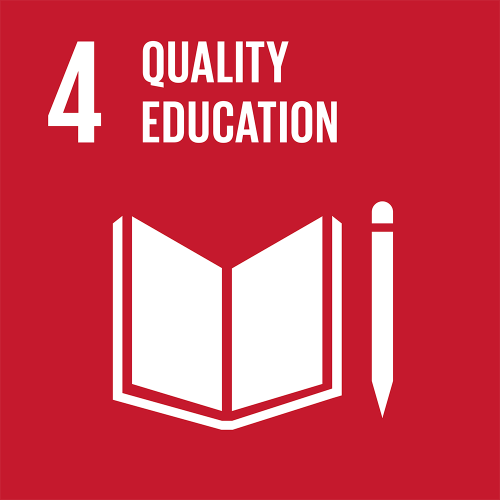Teacher training in Bolivia even more important in times of COVID-19
SPIDER’s education programme has supported Bolivian organisations doing teacher training in how to use ICTs when teaching since 2013. These skills proved even more important to ensure that education can continue even when COVID-19 lockdowns closed Bolivian schools.
There are two ongoing projects, with partners Fundacion La Paz and World Vision Bolivia. Both train primary and secondary school teachers to use ICTs as a tool when teaching. SPIDER research partner Fundacion Machaqa Amawta (FMA) follows both projects to assess the results. Research began with baseline studies. We present those findings below.
The projects
The two ongoing projects, are with partners Fundacion La Paz and World Vision Bolivia. The intervention of these partners is critical because the Ministry of Education has not adequately invested in the additional resources need to support ICT-based education, including the capacity required by the teachers to use ICT in teaching.
Both SPIDER partners train primary and secondary school teachers to use ICTs as a tool when teaching. SPIDER research partner Fundacion Machaqa Amawta (FMA) follows both projects to assess the needs and to validate the results of the intervention. This update shares results from the baseline studies.

World Vision is implementing its project in Llallagua and Uncía municipalities of Potosí. Potosí is one of the poorest rural regions in Bolivia. The project is providing ICT education to 100 teachers.
Baseline data was collected from primary school teachers and project facilitators by means of interviews and survey questionnaires. 79% of those responding were women. All teacher participants in the training had attained higher education and have good teaching experience. 62% teach in Llallagua and 38% teach in Uncía.


The Fundacíon La Paz implements its project in the Murillo province of La Paz region, with most of the population living in urban areas.
The first cycle of the training had 237 participants including teachers (84%), trainees (13%), school administrative personnel and parents (3%). More than 75% had university or college education and 68% were women. Teacher participants had good teaching experience, only 10% had less than one year of teaching experience.

The teaching profession in Bolivia is dominated by women and it is therefore also not surprising that the respondents to the baseline survey were mostly female teachers. Sectors such as education that are dominated by women provide analytical opportunities in seeing the socio-political role and its contribution to the co-production of gender and technology.
What this means is that a sector dominated by a particular gender, and afforded digital opportunities, as is the case with education in Bolivia, provide useful contexts for extending the scrutiny to age, class and ethnic variables as strong drivers in determining access and use since gender as a point of analysis is already embedded. In the case of Bolivia we learn that the urban rural divide in terms of infrastructure gaps has a direct impact on use, and access to the digital content that the government has developed.
Covid-19 impact on education in Bolivia
The Bolivian government made the difficult but necessary decision of closing out the school year, half way through 2020.
In addition to that the government signed a law requiring education institutions to use different educational modalities, that is, “face-to-face, distance/virtual and blended” throughout the Bolivian educational system. The goal of this law is to implement a system that supports different forms of teaching and learning.
Covid-19 has therefore led to new reforms in Bolivia’s education sector. Schools without the necessary infrastructure and capacity will be further marginalised without access to the education curriculum.
Implications and challenges
To some Bolivians online education is a new norm. Several parents were opposed to online education because “many families do not have internet at home”.
To some Bolivians online education is a new norm. Several parents are opposed to online education because “many families do not have internet at home”.
The situation in the rural areas where World Vision focuses its efforts is even more dire, where teachers lament that they have to send material to their students via What’s App or YouTube. In many families, it is the father who owns a smart phone that the student will use to access the content. This complicates the access process for the teachers and students, the former who suggest difficulties in reaching their students.
Bolivia’s ministry of education when signing the new education law, may not have considered the different requirements needed to support implementation of some of the education modalities.
It [online education] was a swift decision that “did not take into account the fact that the country’s educational institutions lack connectivity, [ICT] equipment, computer technicians [technical human capacity] and ICT-trained teachers”.
COVID-19 public health concerns meant that trainings were conducted online. The following experiences and challenges were shared by participants.
World Vision’s project participants
%
Teachers without Internet access
%
Believe their students lack Internet access
%
Less than 50% of their students attend online classes
In VM’s project, 31% of teachers did not have internet connection. For the 69% who had internet connection it was mostly via mobile phone. Some teachers used internet cafes to access internet. Most teachers had access to a laptop. The report attributes increased access to laptops to a government programme which has been promoting digital literacy and providing teachers with laptops. Majority of teacher believed their students do not have internet access (59%). Teachers noted that most students do not have a laptop (95%), desktop computer (88 %) or tablet (94%). Subsequently 38% of respondents noted that less than 50% of their students attend virtual classes.
Fundacíon La Paz project participants
%
Teachers without Internet access
%
Believe their students lack Internet access
%
Less than 50% of students come to their online classes
In Fundacíon La Paz’s project all participants had access to ICTs (for example a laptop, smartphone, desktop computer or tablet) except one. 81.4% had access to internet and the majority of those with internet (42.6%) had it via a fixed connection. Teachers who said that their students have internet connect were 16.9% and those with students without internet are 35.9%. The rest 47.3% did not have information about internet connectivity for their students. More than 52% of respondent believed that less than 50% of their students attend virtual classes.
The most difficult challenges for teachers in World Vision’s project were limited knowledge to use digital tools to develop classes and poor internet connectivity. Some students who lack internet or ICT devices could not be contacted by teachers. Their parents expressed lack of interest, “parents do not connect [to internet], they say it is another expense”. Teachers who teach lower grades face different challenges. One of them noted that “being 8-year-old boys and girls, they cannot properly use the platforms and it is even worse if the parents do not have knowledge to use ICT”.
Teaching strategies and opportunities
Participants in both projects highlighted different digital tools that are useful in teaching. Many of these tools are free, effective and convenient.
In teaching reading and writing, WhatsApp and MS office particularly Word, Excel, PowerPoint were the most used by World Vision trainees.
Interactive computer games were preferred for teaching mathematics. Teachers noted that mathematics was also taught on radio and zoom.
WhatsApp was used for messaging, delivery of learning instructions (recorded videos or tutorials) and video conferencing with students and parents.
Other applications such as Telegram, YouTube, Facebook and Google apps are used for different purposes. The strategy is to use applications that suit the needs of the teachers, students and parents in terms of delivery of education instructions, material, and in terms of user skills (simplicity to use).
The baseline survey was administered through google forms and in La Paz 237 teachers took part, while in Llallagua and Unica 116 responses were recorded.
The training of the teachers also moved completely to the virtual realm in light of the strict stay-at-home orders as mentioned. Taking the data that is informing this baseline as a basis one hastens to conclude that, Bolivia’s ambitious efforts to spread ICT access and improve use in the education sector, is on the right track.
The use of a combination of applications in realising the project activities and also collecting the data that informs this article, suggests that despite the challenges, Bolivia’s education sector is well on its way to being reformed.
Lessons and recommendations
- Teachers were able to re-use recorded tutorials and be able to share them as many times as necessary. This saved their time spent preparing lessons.
- The baselines show that due to Covid-19 it has been difficult to conduct educational activities offline, and online for students who lack computers and internet. The studies therefore recommend that technical teams should examine alternative strategies to overcome these challenges.
- The baselines also recommend that the implementing teams for both projects should consider the age and experiences of trainees to promote intergenerational ICT capacity building to offer different age groups (young teachers who are tech savvy and experienced teachers who are pedagogically skilled) to exchange knowledge and learn from each other.
- Findings from both projects show that the multi-stakeholder approach to implementation of ICTs is a success factor. The ministry of education of Bolivia, private organisations, parents and schools have all played a role in building ICT capacity.
Find out more
Result follow up from previous projects
Let's Learn to Teach using ICT - Capacity Building Teachers
A study of the impact integration of ICT has on teaching methods and learning.
Mathematics and Language through the use of ICT
Researchers studied what both teachers and pupils think of using ICTs in the classrooms.
Education & Learning programme
Read more about the programme here

